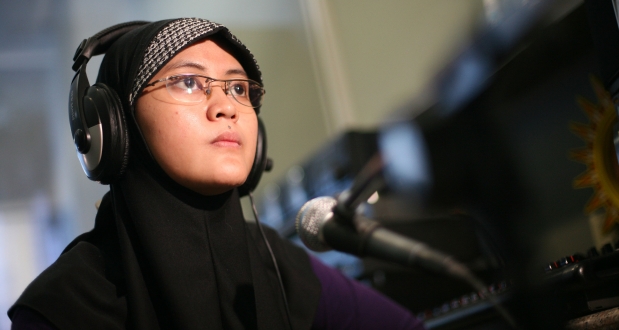- About
- Topics
- Picks
- Audio
- Story
- In-Depth
- Opinion
- News
- Donate
- Signup for our newsletterOur Editors' Best Picks.Send
Read, Debate: Engage.
| October 14, 2016 | |
|---|---|
| topic: | Women's rights |
| tags: | #HopeNow, #Kenya, #Lake Region, #Sex for fish, #Women empowerment |
| located: | Kenya |
| by: | Bob Koigi |
Women haggle for the best catch and the fishermen, mostly men, shove them around. Once in a while the well-built men will have some hushed conversations with some specific women who later get the best catch.
The women rely on the fish for their income. They sell them in local markets. But there is a catch. In order for a woman to get the fish which fetches the best prices in the market, she either has to part with a lot of money, or offer herself for sex in exchange for the fish. It is a practice that has colloquially been christened ‘sex for fish’ or, in the local Luo language, 'jaboya'.
Women traders who have the duty of taking care of their children view the arrangement as a viable way to make a living. Dwindling fish stocks in Lake Victoria occasioned by water pollution and overfishing has led to a water shortage. Competition for the stocks hasn’t helped matters either. Women are willing to do anything to get a daily share of the fish supplies.
The practice has been fanning the raging number of HIV cases in the lakeside region with the three counties in the region, Homa Bay, Siaya and Kisumu, having an infection rate up to four times the national average of six per cent, according to the Kenya AIDS Response Progress Report 2014. The Ministry of Health statistics show that Kenya has an approximated 1.3 million adults who are HIV positive. Over 370,000 of these are in the three counties which account for 30,000 new adult infections each year.
Priscilla Moraa is a single mother of four and a fish vendor at Luanda Kotieno beach in Siaya County. Sex for Fish is not new to her. She has been in it for the last five years.
Moraa says it has managed to get her Tilapia and Nile Perch, two fish breeds that are in high demand in the markets. She is able to earn $4 dollars on a good day. “Of course I feel bad trading my body for fish. It kills me every day. But you have to realize that this is not just about me. There are children looking up to me. I have mouths to feed. To me jaboya is just a means to an end,” she says. It is a narrative that is too common in the beach among desperate women.
But in the midst of despair, stories of hope are emerging. Womens organizations and NGOs have been working at empowering women to learn better fishing techniques and own the fish markets with a view to discarding the risky practices.
It started in 2011 when US Peace Corps touched by the plight of the women donated six boats to encourage them to be self-reliant. This has now birthed the ‘No Sex for Fish’ movement with the number boats having increased to more than 20 and more organizations like The Victoria Institute of Environment and Development working at the heart of this campaign.
Atieno Karina, one of the beneficiaries of the project who previously practiced sex for fish for three years, now operates her own boat, manages to fish on her own and has even employed two fishermen. On a good day she is able to earn $20 dollars after expenses.
“This is the empowerment we want. Unfortunately jaboga still happens and the rate of HIV infections is still high. We are still looking to enlist more women to our programme but in a deeply cultured practice like that one, we just have to accept gradual change and acceptance,” she said.
Lawrence Otieno a peer counsellor and one of the brains behind HopeNow, a local NGO working with women in Homa Bay County on behaviour change, argues that though the interest to quit is largely there, the means to get women out are still untenable. He calls for a holistic approach that is sustainable ensuring that once women embrace it, they will own it to the very end.
“This is a sensitive matter. We have been trying to talk to these women to see first if they have the will to leave what they do and secondly what alternative options they think about, whether small businesses, or still themselves fishing,” Otieno said.
By copying the embed code below, you agree to adhere to our republishing guidelines.
